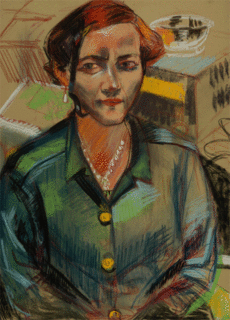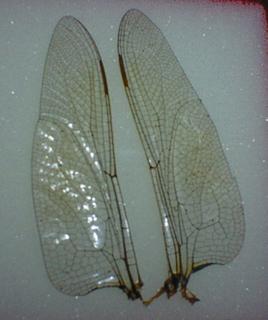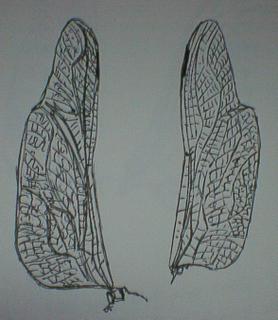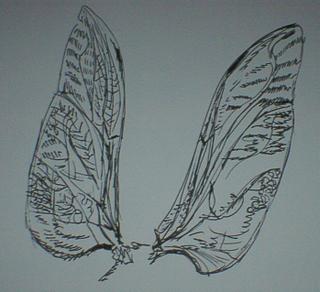I recently came across the college textbook called
Modern Criticism and Theory, A Reader, Edited by David Lodge which I paid .50 cents for. The original college price was $26.95. Published in 1988, it has essays by Ferdinand de Saussure, Victor Shklovsky, Jacques Lacan, Jacques Derrida, Mikhail Bakhtin, Tzvetan Todorov, Roland Barthes, Michel Foucault, Stanley Fish, Paul De Man, Terry Eagleton, Helene Cixous. . . in other words the big guns of Structuralist and Post-Structuralist theory. Though out of date and already passe, this movement had such strong influences on literary criticism and academia (to the horror of many writers, such as W.G. Sebald)that it is still fascinating to read. Usually I don't like texts that have been pencilled over, but in this case, it's almost equally as interesting to note what material was underlined and the content of the margin notes (in themselves a deconstruction of the text). Here are some of the juicier excerpts:
From "Art as Technique" by Victor Shklovsky: "Potebnya and his numerous disciples consider poetry a special kind of thinking -- thinking by means of images; they feel that the purpose of imagery is to help channel various objects and activities into groups and to clarify the unknown by means of the known."
Although Shkovsky is rebutting Potebnya and his disciples, as an Imagist I am interested in this.
" ' Without imagery there is no art' -- 'Art is thinking in images.' These maxims have let to far-fetched interpretations of individual works of art."
"But we find that images change little, from centruy to century, from nation to nation, from poet to poet, they flow on without changing. . . poets are much more concerned with arranging images than with creating them."
I found this an interesting observation.
"Art removes objects from the automatism of perception in several ways." He goes on to illustrate how "Tolstoy makes the familiar seem strange by not naming the familiar object. He describes an object as if he were seeing it for the first time, an event as if it were happening for the first time. In describing something he avoids the accepted names of its parts and instead names corresponding parts of other objects. Tolstoy uses this technique of 'defamiliarization' constantly."
Good advice for any writer. . .
Roland Barthes, "The Death of the Author":
In his story Sarrasine Balzac, describing a castrato disguised as a woman, writes the following sentence: 'This was woman herself, with her sudden fears, her irrational whims, her instinctive worries, her impetuous boldness, her fussings, and her delicious sensibility.' Who is speaking thus? Is it the hero of the story bent on remaining ignorant of the castrato hidden beneath the woman? Is it Balzac the individual, furnished by his personal experience with a philosophy of Woman? Is it Balzac the author professing 'literary' ideas on femininity? Is it universal wisdom? Romantic psychology? We shall never know, for the good reason that writing is the destruction of every voice, of every point of origin. Writing is that neutral, composite, oblique space where our subject slips away, the negative where all identiy is lost, starting with the very identiy of the body writing."
"As soon as a fact is
narrated no longer with a view to acting directoy on reality but intransitively, that is to say, finally outside of any function other than that of the very practice of the symbol itself, this disconnection occurs, the voice loses its origin, the author enters into his own death, writing begins."
I find the Structuralists annoying at times, in both their rhetoric and their nihilism; at the same time, some of their observations on text rival the best poetry, the best creative fiction.
Michel Foucault, What is An Author?:
"The second theme, writing's relationship with death, is even more familiar. This lik subverts an old tradition exemplified by the Greek epic, which was intended to perpetuate the immortality of the hero; if he was willing to die young, it was so that his life, consecrated and magnified by death, might pass into immortality; the narrative then redeemed this accepted death. . . Our culture has metamorphosed this idea of narrative, or writing, as something designed to ward off death. . . The work, which once had the duty of providing immortality, not possesses the right to kill, to be its author's murderer, as in the cases of Flaubert, Proust and Kafka."
"Another notion which has hindered us from taking full measure of the author's disappearance, blurring and concealing the moment of this effacement and subtly preserving the author's existence, is the notion of writing (ecriture). . . The notion of writing, as currently employed, is concerned with neither the act of writing nor the indication -- be it symptom or sign -- of a meaning which someone might have wanted to express. . . In current usage, however, the ntion of writing seems to transpose the empirical characteristics of the author into a transcendental anonymity."
Wolfgang Iser: The Reading Process: A Phenomenological Approach:
Iser's comments on the illusory nature of writing/art are interesting, especially to someone interested in Hypnosis.
"Even in texts that appear to resist the formation of illusion, thus drawing our attention to the cause of this resistance, we still need the abiding illustion that thge resistance itself is the consistent pattern underlying the text. This is especially true of modern texts, in which it is the very precision of the written details which increases the proportion of indeterminancy; one detail appears to contradict another, and so simultaneously stimulates and frustrates our desire to 'picture,' thus continually causing our imposed 'gestalt' of the text to disintegrate. Without the formation of illusions, the unfamiliar world of the text would remain unfamiliar; through the illusions, the experience offered by the text becomes accessible to us, for it is only the illusion, on its different levels of consistency, that makes the experience 'readable.' If we cannot find (or impose) this consistency, sooner or later we will put the text down. The process is virtually hermeneutic."
"Even while the reader is seeking a consistent pattern in the text, he is also uncovering other impulses which cannot be immediately integrated or will even resist final integration. Thus the semantic possibilities of the text will always remain far richer than any configurative meaning formed while reading."
"It is precisely during our reading that the transitory nature of the illusion is revealed to the full."
"As the formation of illusions is constantly accompanied by 'alien associations' which cannot be made consistent with the illusions, the reader constantly has to lift the restrictions he places on the 'meaning' of the text. Since it is he who builds the illusions, he oscillates between involvement in and observatio of those illusions; he opens himself to the unfamiliar world without being imprisoned in it."
"In order to understand this 'experience,' it is well worth considering Georges Poulet's observations on the reading process. He says that books only take on their full existenc in the reader."
Such an obvious observation! Yet how startling! Imagine the greatest books not existing -- and yet they don't, until someone reads them. . .
I was never a big fan of Harold Bloom,'s but his essay on "Poetic Origins and Final Phases" has some great stuff:
"More than ever, contemporary poets insist that they are telling the truth in their work, and more than ever they tell continuous lies, particularly about their relations to one another, and most consistently about their relations to their precursors." [The pencilled-in margin note here reads "poets tell lies". I found this priceless, easily worth the .50 cost of the book.]
"Catastrophe, as Freud and Ferenczi viewed it, seems to me the central element in poetic incarnation, in the fearsome process by which a person is re-born as a poet."
"How are true poets born? Or better, as the Age of Sensibility liked to ask, what makes posssible the incarnation of the Poetical Character? Dessication combined with an unusually strong oceanic sense is the highly dualistic yet not at all paradoxical answer."
"For even in the context of incarnation, of becoming a poet, obligation shines clear as a little death, premonitory of the greater fall down the the inanimate. Poets tend to incarnate by the side of ocean, at least in vision, if inland far they be." [The margin note here reads: "Poets tend to incarnate by side of ocean"!!]
"If not to have conceived oneself is a burden, so for the strong poet there is also the more hidden burden: not to have brought oneself forth, not to be a god breaking one's own vessels, but to be awash in the Word not quite one's own."
"To live, the poet must
misinterpret the father, by the crucial act of misprision, which is the re-writing of the father. But who, what is the poetic father? The voice of the other, of the
daimon, is always speaking ine one; the voice that cannot die because already it has survived death --
the dead poet lives in one."
"A poet, I argue in consequence, is not so much a man speaking to men as a man rebelling against being spoken to by a dead man (the precursor) outrageously more alive than himself."
"Perhaps this why the poet-in-a-poet
cannot marry, whatever the person-in-a-poet chooses to have done."
I'm not crazy about Robert Bly, either (though he has his moments), though parts of this bring to mind an excellent book by Bly called
Leaping Poetry.


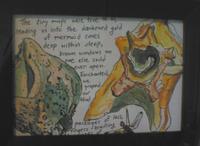
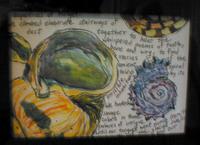
 Leading us into the darkened gold of mermaid caves deep within sleep, brown windows no on else could ever open. Enchanted, we groped our blind packages of loss, fingers brailling tapestries of hunger. We climbed elaborate stairways of dust together to hear the whispered poems of tooth, bone and wing, to find stories of the ancient spiral told by its invisible inhabitants. We hunted save colors in those palaces of intrigue until our tongues went numb from the salted taste of the glacial swells and our clumsy heads were deafened by surge and drum. Clasping hands, we followed seaweed paths into tomorrow, drank deep from starry wells, and folded many kinds of darkness into our chests, where we kept their beats both secret and alive.
Leading us into the darkened gold of mermaid caves deep within sleep, brown windows no on else could ever open. Enchanted, we groped our blind packages of loss, fingers brailling tapestries of hunger. We climbed elaborate stairways of dust together to hear the whispered poems of tooth, bone and wing, to find stories of the ancient spiral told by its invisible inhabitants. We hunted save colors in those palaces of intrigue until our tongues went numb from the salted taste of the glacial swells and our clumsy heads were deafened by surge and drum. Clasping hands, we followed seaweed paths into tomorrow, drank deep from starry wells, and folded many kinds of darkness into our chests, where we kept their beats both secret and alive.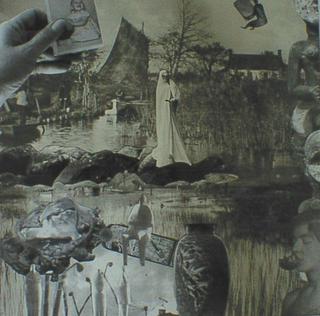
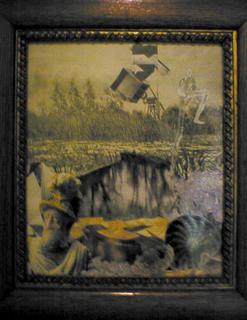
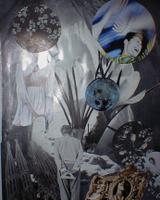
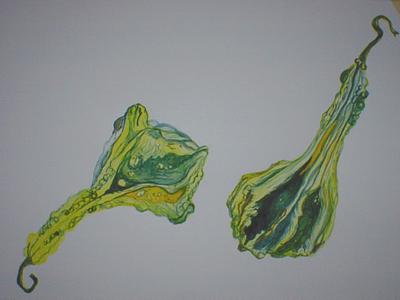 This is a watercolor painting of gourds I did last week. I like painting gourds because they seem wondrous and magical to me, yet somewhat monstrous -- curious freaks of nature, with their odd colors and strange, twisted shapes and markings. They also fascinate me because their landscapes are contorted, alien, bizarre -- like small villages dotting ravines and crevasses of dark green and pale gold. Watercolor is an amazing medium. A lot of people think of it as uncontrollable and hard to manage, but the key is in the water itself. If you use very little water on hot pressed watercolor paper, the paper won't warp or wrinkle. The flat paper holds the color well and it is possible to take a long time to explore the slow build-up of mass and color, almost in the same way as oils or acrylics. The beauty of watercolors is that they can be used as translucent layers, to build up colors, and they do have a certain crisp delicacy that is hard to achieve with other media.
This is a watercolor painting of gourds I did last week. I like painting gourds because they seem wondrous and magical to me, yet somewhat monstrous -- curious freaks of nature, with their odd colors and strange, twisted shapes and markings. They also fascinate me because their landscapes are contorted, alien, bizarre -- like small villages dotting ravines and crevasses of dark green and pale gold. Watercolor is an amazing medium. A lot of people think of it as uncontrollable and hard to manage, but the key is in the water itself. If you use very little water on hot pressed watercolor paper, the paper won't warp or wrinkle. The flat paper holds the color well and it is possible to take a long time to explore the slow build-up of mass and color, almost in the same way as oils or acrylics. The beauty of watercolors is that they can be used as translucent layers, to build up colors, and they do have a certain crisp delicacy that is hard to achieve with other media.
